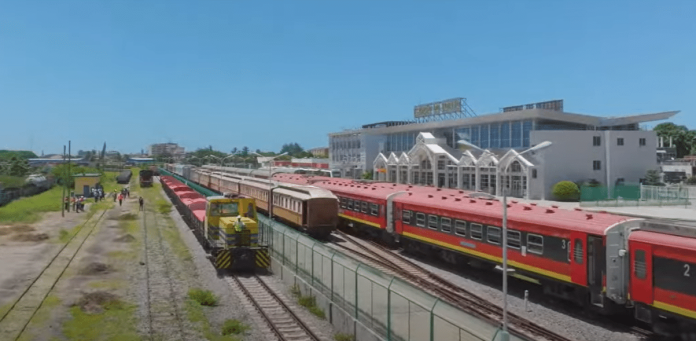With the ambitious Lobito Corridor Investment Project, the Zambia Chamber of Commerce and Industry (ZACCI) has forecast substantial economic gains for Zambia, Angola, and the Democratic Republic of the Congo (DRC). The corridor is predicted to significantly change the dynamics of regional trade by increasing trade and investment in important industries including manufacturing, mining, and agriculture by 20% by simplifying trade routes to international markets.
ZACCI Chief Executive Officer Elvin Nasilele has highlighted the corridor’s potential to enhance export opportunities for Zambian goods, thereby expanding the country’s economic footprint in the region. Speaking on Wednesday, Nasilele emphasized how the Lobito Corridor would enable small and medium enterprises (SMEs) to integrate into regional and global value chains, particularly in agriculture and mining. “This will enhance their competitiveness and resilience, driving sustainable growth,” he stated.
Zambia, strategically located in Southern Africa, stands to gain immensely from the corridor’s development. According to Nasilele, the shorter transit route to the Atlantic Ocean will significantly reduce shipping costs, making Zambian exports more competitive in global markets. The logistical advantages are expected to benefit both importers and exporters, fostering increased trade volumes and economic growth. By leveraging its central position, Zambia has the potential to become a regional logistics hub, improving transit times and trade profitability for businesses operating in the region.
The Lobito Corridor’s potential to promote industrial expansion through value addition in mining and agriculture is one of its main features. Nasilele noted that Zambia’s economy might become more diversified if processing firms were established close to transit hubs. Jobs in industries like construction, logistics, and warehousing are anticipated to be created by this move toward industrialization. This could therefore support the growth of skills and economic empowerment, especially for local communities.
Moreover, the improved infrastructure brought about by the Lobito Corridor is anticipated to attract significant foreign direct investment (FDI). Key sectors like mining, agriculture, and manufacturing are expected to draw international investors, boosting Zambia’s economic growth and positioning the country as a critical player in regional trade.
The development of the Lobito Corridor has also been supported by proactive leadership from President Hakainde Hichilema. Nasilele praised the president’s commitment to advancing Zambia’s trade and economic agenda, noting his active participation in the Lobito Corridor Summit in Angola. The summit, attended by other leaders such as U.S. President Joe Biden, Angola’s President João Lourenço, and DRC’s President Félix Tshisekedi, underscores the corridor’s significance in fostering regional and international partnerships.
“The Lobito Corridor represents a unique opportunity for Zambia to unlock new economic opportunities, strengthen regional integration, and enhance its role in global trade,” Nasilele said. He expressed optimism about the corridor’s potential to drive sustainable growth across Southern Africa, creating a ripple effect of economic transformation for the participating countries.
The Lobito Corridor Investment Project stands as a beacon of hope for Zambia, Angola, and the DRC. By reducing costs, increasing trade, and driving industrial growth, the project promises to redefine regional trade and economic integration, positioning Zambia as a leader in the Southern African economic landscape.



